BMW iX1 vs Hyundai Tucson - Differences and prices compared
Compare performance (313 HP vs 288 HP), boot space and price (41800 £ vs 20900 £ ) at a glance. Find out which car is the better choice for you – BMW iX1 or Hyundai Tucson?
Costs and Efficiency:
Price and efficiency are key factors when choosing a car – and this is often where the real differences emerge.
Hyundai Tucson has a decisively advantage in terms of price – it starts at 20900 £ , while the BMW iX1 costs 41800 £ . That’s a price difference of around 20931 £.
As for electric range, the BMW iX1 performs clearly better – achieving up to 463 km, about 393 km more than the Hyundai Tucson.
Engine and Performance:
Power, torque and acceleration are the classic benchmarks for car enthusiasts – and here, some clear differences start to show.
When it comes to engine power, the BMW iX1 has a slight edge – offering 313 HP compared to 288 HP. That’s roughly 25 HP more horsepower.
In acceleration from 0 to 100 km/h, the BMW iX1 is clearly perceptible quicker – completing the sprint in 5.60 s, while the Hyundai Tucson takes 7.50 s. That’s about 1.90 s faster.
In terms of top speed, the Hyundai Tucson performs a bit better – reaching 204 km/h, while the BMW iX1 tops out at 180 km/h. The difference is around 24 km/h.
There’s also a difference in torque: BMW iX1 pulls distinct stronger with 494 Nm compared to 379 Nm. That’s about 115 Nm difference.
Space and Everyday Use:
Beyond pure performance, interior space and usability matter most in daily life. This is where you see which car is more practical and versatile.
Both vehicles offer seating for 5 people.
In curb weight, Hyundai Tucson is noticeable lighter – 1542 kg compared to 1940 kg. The difference is around 398 kg.
In terms of boot space, the Hyundai Tucson offers noticeable more room – 620 L compared to 490 L. That’s a difference of about 130 L.
In maximum load capacity, the Hyundai Tucson performs somewhat better – up to 1799 L, which is about 304 L more than the BMW iX1.
When it comes to payload, Hyundai Tucson barely noticeable takes the win – 545 kg compared to 495 kg. That’s a difference of about 50 kg.
Who wins the race?
The BMW iX1 proves to be outperforms in nearly all aspects and therefore becomes our DriveDuel Champion!
BMW iX1 is the better all-rounder in this comparison.
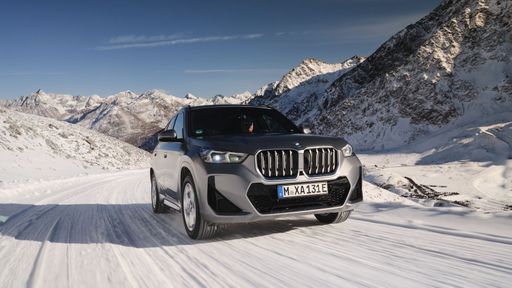
BMW iX1
Costs and Consumption
View detailed analysis
Engine and Performance
View detailed analysis
Dimensions and Body
View detailed analysis
BMW iX1
The BMW iX1 wraps BMW's electric ambition into a compact SUV package that feels unexpectedly premium, with sharp handling and a crisp, modern cabin that keeps the driver in charge. It's ideal for buyers who want a stylish, quiet daily driver with useful practicality and tech-savvy touches — plus enough character to make the commute feel less like a chore and more like a short joyride.
details
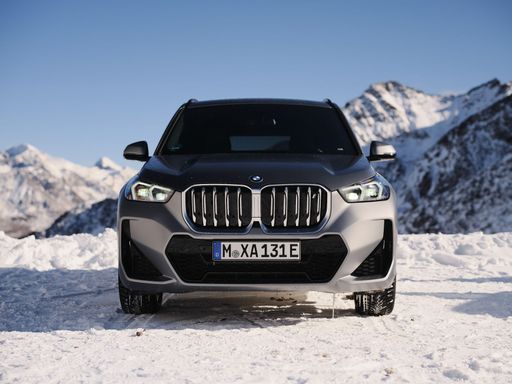
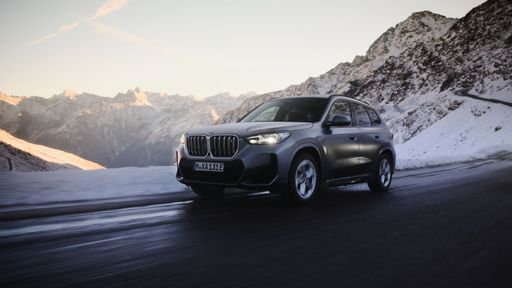
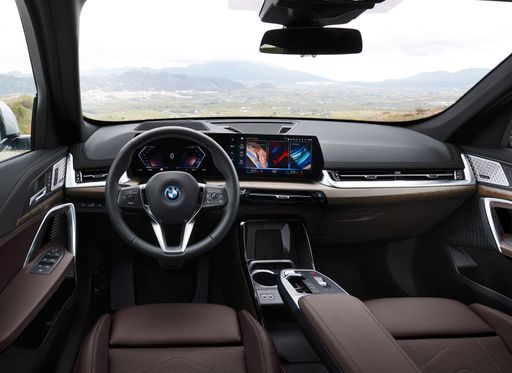
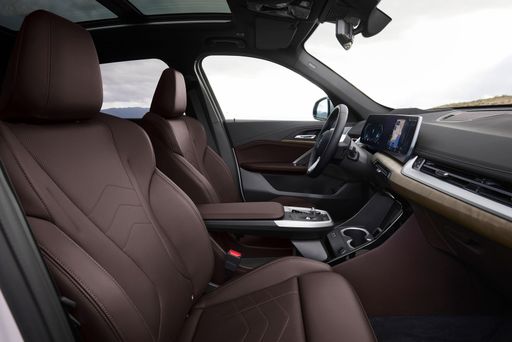
Hyundai Tucson
Hyundai Tucson marries bold, sculpted looks with a clever, roomy cabin that feels smarter than its price tag suggests. It's composed on the road, easy to live with day-to-day, and a sensible choice for buyers who want SUV style without the showroom theatrics.
details




Costs and Consumption |
|
|---|---|
|
Price
41800 - 54600 £
|
Price
20900 - 47900 £
|
|
Consumption L/100km
-
|
Consumption L/100km
2.7 - 7.6 L
|
|
Consumption kWh/100km
15.8 - 17.1 kWh
|
Consumption kWh/100km
-
|
|
Electric Range
436 - 463 km
|
Electric Range
63 - 70 km
|
|
Battery Capacity
64.80 kWh
|
Battery Capacity
-
|
|
co2
0 g/km
|
co2
62 - 172 g/km
|
|
Fuel tank capacity
-
|
Fuel tank capacity
52 - 54 L
|
Dimensions and Body |
|
|---|---|
|
Body Type
SUV
|
Body Type
SUV
|
|
Seats
5
|
Seats
5
|
|
Doors
5
|
Doors
5
|
|
Curb weight
1940 - 2085 kg
|
Curb weight
1542 - 1893 kg
|
|
Trunk capacity
490 L
|
Trunk capacity
546 - 620 L
|
|
Length
4500 mm
|
Length
4525 - 4535 mm
|
|
Width
1845 mm
|
Width
1865 mm
|
|
Height
1616 mm
|
Height
1650 mm
|
|
Max trunk capacity
1495 L
|
Max trunk capacity
1795 - 1799 L
|
|
Payload
495 kg
|
Payload
518 - 545 kg
|
Engine and Performance |
|
|---|---|
|
Engine Type
Electric
|
Engine Type
Petrol, Full Hybrid, Plugin Hybrid, Diesel MHEV
|
|
Transmission
Automatic
|
Transmission
Manuel, Automatic
|
|
Transmission Detail
Reduction Gearbox
|
Transmission Detail
Manual Gearbox, Dual-Clutch Automatic, Automatic Gearbox
|
|
Drive Type
Front-Wheel Drive, All-Wheel Drive
|
Drive Type
Front-Wheel Drive, All-Wheel Drive
|
|
Power HP
204 - 313 HP
|
Power HP
136 - 288 HP
|
|
Acceleration 0-100km/h
5.6 - 8.6 s
|
Acceleration 0-100km/h
7.5 - 11.6 s
|
|
Max Speed
170 - 180 km/h
|
Max Speed
196 - 204 km/h
|
|
Torque
250 - 494 Nm
|
Torque
250 - 379 Nm
|
|
Number of Cylinders
-
|
Number of Cylinders
4
|
|
Power kW
150 - 230 kW
|
Power kW
100 - 212 kW
|
|
Engine capacity
-
|
Engine capacity
1598 cm3
|
General |
|
|---|---|
|
Model Year
2022 - 2023
|
Model Year
2025
|
|
CO2 Efficiency Class
A
|
CO2 Efficiency Class
F, D, E, B
|
|
Brand
BMW
|
Brand
Hyundai
|
Is the BMW iX1 offered with different drivetrains?
The BMW iX1 is available as Front-Wheel Drive or All-Wheel Drive.




